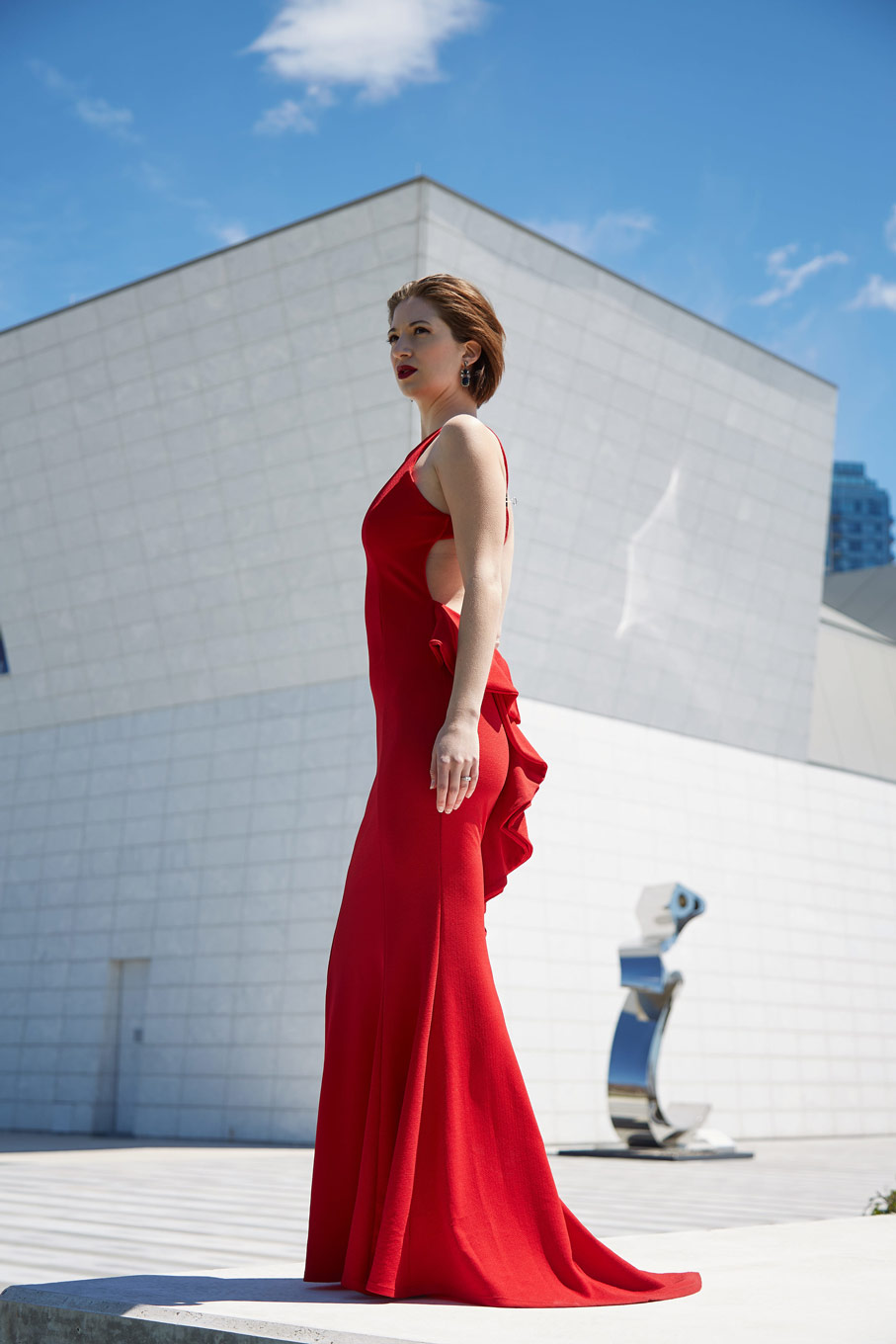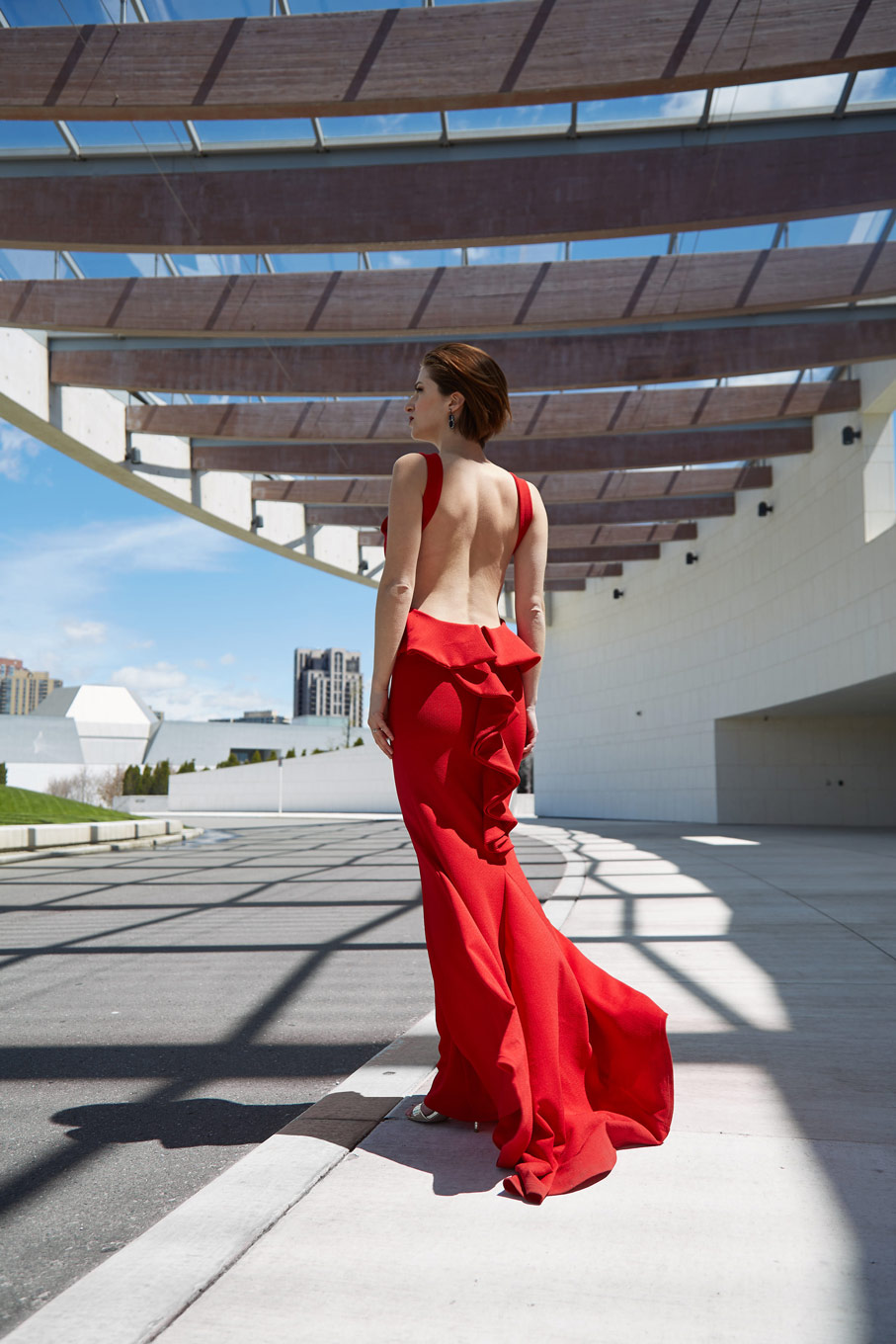
Talking with singers: Cassandra Warner
InterviewCanadian mezzo Cassandra Warner keeps a busy schedule of singing and teaching, and she’s a self-professed thinker-outside-the-box. Among her more traditional work in roles like Carmen (La tragédie de Carmen), Dorabella (Così fan tutte), and Cendrillon (Cendrillon), Warner brings her operatic chops to less likely spaces, like pirate ships, gymnasiums, and jewellery line launches.
She chats with us about the versatility of the human voice, the responsibilities of the professional singer, and her one-of-a-kind bucket list.
When do you think opera can be a versatile, mobile art form, and when do you think it’s best experienced in a more stationary, traditional setting?
I have been fortunate to work on many stages here in Canada and abroad. If an audience is interested in seeing a spectacle with high production values, opera in its traditional setting certainly has its merits. I believe the operatic form has the potential to do so much more. The human voice is a beautiful thing and its distinct advantage is that it is transportable, communicative and highly versatile. I have been exploring this potential and enhancing the audience experience by presenting opera in unique spaces where a more immediate connection is possible.
What do you like about bringing your work to unexpected locations?
I like to challenge myself by pushing concepts and spaces to their limits. I have brought opera to unexpected spaces such as: barns, roof tops, boxing gyms, restaurants, living rooms, and even pirate ships. Audiences enjoy the intimacy enabled by a smaller venue and being directly engaged by the performers.
I am greatly influenced and inspired by the neighbourhood I live in. Toronto’s West End is home to creative types of all kinds, offering an eclectic mix of fascinating art exhibitions and concerts. I have collaborated with DJs, electric violinists, chefs and even beatboxers. My husband is also an important influence on my work. He is an architect, who is constantly in search of new approaches to create highly functional and accessible buildings that can interact with the public in a variety of ways. I like to conceptualize my performing in the same manner.

For young singers who might be curious about a similar professional path, how have you carved out your entrepreneurial career?
First of all, the voice is paramount. Get that technique down first before moving on to anything else. Next, opera is certainly a pleasure to take part in, but at the end of the day, it is a business. You need an income to sustain and advance your career. Be sure to learn important skills such as how to create a spreadsheet, a great bio & resume, a website, a contract, and how to improve your client relation skills. Talk to a variety of industry people, collaborate, and learn as much as you can from each other. If you treat every day like a 9-5 job, even if you don’t have a job, you will likely be successful. Memorize that music and always tell a story! People are paying their hard-earned money to have an experience that transports them away from everyday life, so try your best to provide it for them. Once your voice is ready and your business skills are strong, promote yourself because no one else will.
Do you have any “bucket list” items on your performance wish-list (roles, venues, repertoire)?
I want to continue pushing opera outside of the traditional setting. It would be pretty cool to put on a performance amidst ancient ruins. I am a history nerd and to combine my love of that and music would be a dream. I would like to explore more possibilities onstage as well. As for particular shows and roles, I am quite content not knowing exactly what is next. Remaining open to all of the possibilities without putting any undue pressure on myself is key. Thus far, my instincts have served me well.

For more with Cassandra Warner, visit her website, have a listen to her recordings, and follow her on Instagram.

Comments